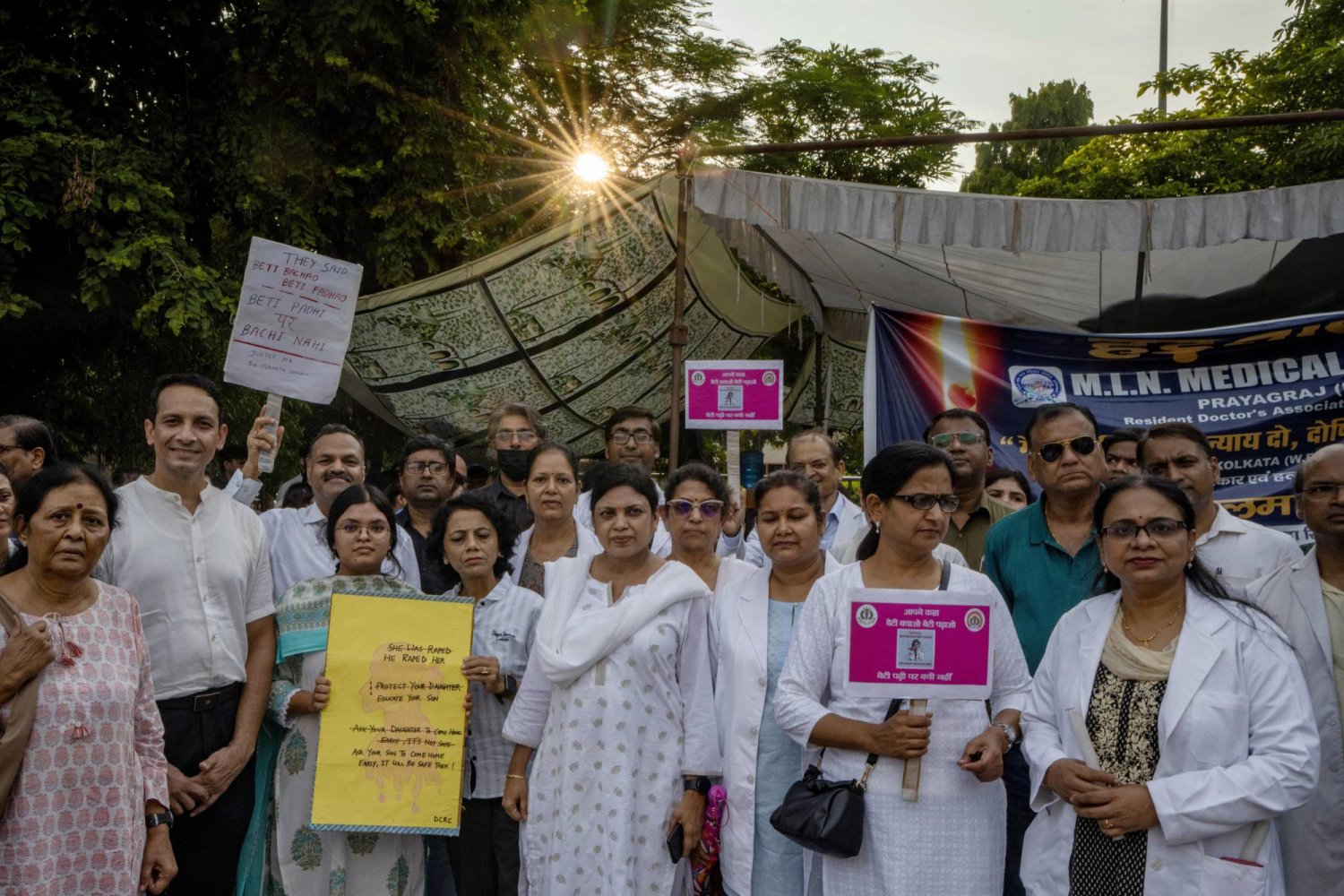Doctors resumed their strike in West Bengal’s capital, Kolkata, as they continued to protest rape and murder charges laid on a 31-year-old female doctor. Doctors had unmet demands in the form of improved security measures in hospitals and, thus, restarted the strike partially on Tuesday. The West Bengal Junior Doctors’ Front, representing around 7,000 doctors, suspended partial services last month due to the flood situation in parts of the state.
Against this backdrop, doctors who have been protesting since Monday expressed frustration over the state government’s inaction regarding promises to make hospitals more secure by addressing concerns like better lighting and even installing CCTVs and necessary safety measures. The protest arose out of the severe assault on one of them, leading to anger and an outcry for justice on the part of medical professionals all over the country.
“Unless we get some clear action on safety, patient services, and the politics of fear by the government, we will have no option but to continue our full strike,” the West Bengal Junior Doctors’ Front said in a statement. The group has insisted that they can only resume their regular duties with concrete improvements in safety measures.
Not limited to Kolkata alone, the strike by doctors has met with protests from other parts of India, including major cities such as New Delhi, Uttar Pradesh, Bihar, and Maharashtra. The doctors’ grievances were supported by union spokesman Aniket Mahato, who said, “The state government has failed to provide safety and security in the workplace. We will take to the streets to ensure the government delivers justice for our colleague.”.
The heinous crime has ignited a debate about the safety of women in India, particularly in highly stressful work environments such as hospitals. The incidence, compared to the infamous gang rape and murder case in 2012, in which a young girl was gang-raped on a Delhi city bus, has inspired more muscular demands for security arrangements for women to be better guarded in public places.
The incident of the attack on the female doctor has come to be a rallying point for the medical fraternity to call on the government to take fast steps to reform the system so that such incidents do not recur again.
India’s Supreme Court hasn’t been a silent onlooker of the situation and formed a hospital safety task force after the doctors’ protest. On Monday, while hearing the case, it was mentioned that it expected the West Bengal government to provide all the safety measures in place by October 15, thus meeting the doctors’ demands. Most doctors, though, remain skeptical about the government’s seriousness in resolving the issue.
One suspect has been arrested in the murder case. Still, the public vilification of West Bengal’s handling of the investigation has been fierce, forcing the police commissioner and top health ministry officials into Wednesday night protest.
Doctors and medical workers up and down the country have continued to express outrage but, this time, demand more than justice for the murder of one of their own. Systemic change that will guarantee safety and security for women health workers working under increasingly risky conditions is what they now demand.
This explains why doctors striking expect the government to take substantial immediate action to safeguard health personnel and avoid further catastrophes if their protests continue to mushroom.















